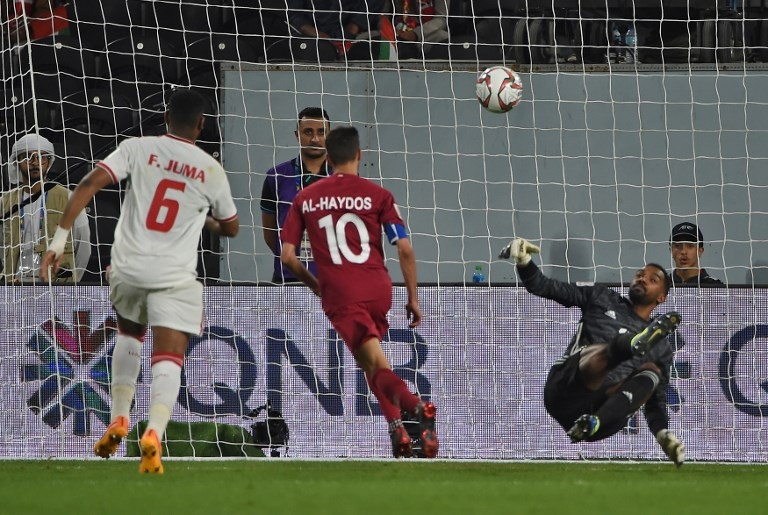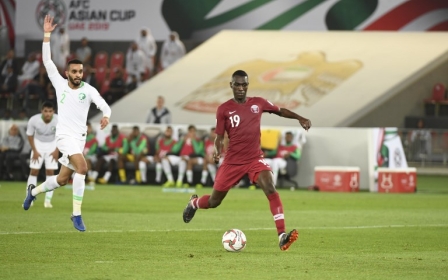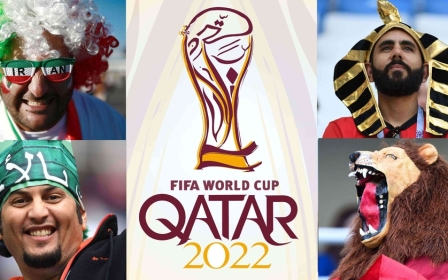Asian Cup: Qatar beat UAE in second 'blockade derby' to reach final

Qatar’s footballers reached the final of the AFC Asian Cup for the first time with a 4-0 win over hosts and regional rivals the United Arab Emirates in Tuesday’s semifinal in Abu Dhabi.
A goalkeeping error by Khalid Eisa Bilal gifted the opening goal to Boualem Khoukhi after 22 minutes and Almoez Ali doubled the lead on 37 minutes to take his tournament-leading tally to eight goals.
Hasan Al Haydos added a third on 80 minutes from the penalty spot and Hamid Ismaeil scored in injury time as Qatar maintained a perfect record that has seen them score 16 goals without conceding in six straight wins.
The match had been dubbed by some the second “blockade derby” following Qatar’s victory over Saudi Arabia earlier in the tournament, a reference to the economic embargo and diplomatic offensive that has seen Doha isolated by its Gulf neighbours since mid-2017.
Footage on social media showed spectators at the Mohammed Bin Zayed Stadium booing the Qatari national anthem before the match started.
Another clip posted on Twitter appeared to show shoes being thrown in the direction of Qatar’s players as they celebrated their second goal.
Qatar will now face Japan on Friday in the final of the Asian continental championship, a tournament in which the Gulf peninsula nation had never previously advanced further than the last eight.
The team’s impressive run suggests that Qatar’s preparations to host the FIFA World Cup in 2022 are progressing on the pitch, although a policy of naturalising promising young players born in other countries has attracted scrutiny and criticism.
Almoez Ali, for instance, was born in Sudan but moved to Qatar at the age of seven, and has spent short spells with clubs in Belgium, Austria and Spain.
His performances in the UAE have provoked debate about his eligibility on social media, with some interpreting FIFA rules as suggesting that a player must have lived in a country for at least five years from the age of 18 to qualify to play for the national team.
Ali is only 22 and has already played for Qatar's national team 31 times since 2016, as well as representing his adopted country at under-19 and under-21 levels.
Football has become a proxy war in the rivalry between Qatar and its neighbours, with Qatar owning Paris Saint-Germain in the French league and Abu Dhabi bankrolling English Premier League champions Manchester City.
Both teams are in the quarterfinals of the UEFA Champions League, Europe's top competition, and are among the world's richest clubs.
Qatar has also invested heavily in football broadcasting rights in the Middle East through its BeIN Sports network, and has sued Saudi Arabia for more than $1bn for alleged "state-sponsored broadcast piracy" over the output of a pirate channel, beoutQ, broadcast over the Riyadh-based satellite provider ArabSat.
New MEE newsletter: Jerusalem Dispatch
Sign up to get the latest insights and analysis on Israel-Palestine, alongside Turkey Unpacked and other MEE newsletters
Middle East Eye delivers independent and unrivalled coverage and analysis of the Middle East, North Africa and beyond. To learn more about republishing this content and the associated fees, please fill out this form. More about MEE can be found here.




